Sleep in a "Museum"
Casa da Picva in Obidos, Portugal
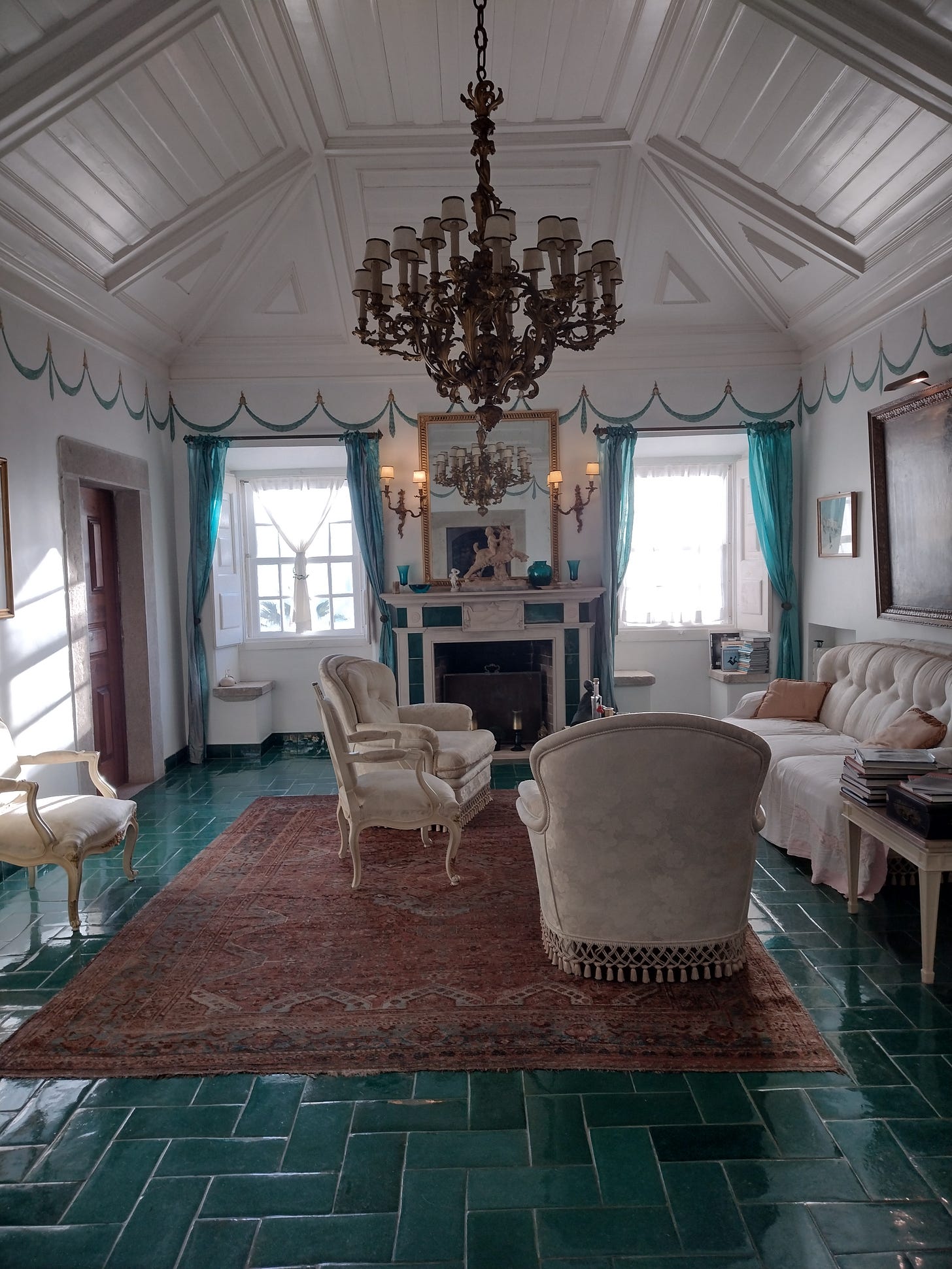
When Paul and I go on road trips in Portugal, we usually try to stay in a small hotel or a Pousada. But for our recent road trip to Obidos, we thought we’d try a guesthouse instead. We chose Casa da Picva and didn’t realize that we were about to sleep in a “museum.”
About Obidos, Portugal.
Obidos, recently named a UNESCO City of Literature, is an ancient fortified city famous for its cobbled streets, historic castle (which is now a Pousada), and a centuries-old massive stone wall offering panoramic views that enclose the well-preserved small city. It’s a place photographers, artists and poets love with evidence of Gothic, Renaissance and Baroque influences, and traditional Portuguese dwellings and charm. Nowadays it’s a city crowded with tourists most of the time, and the shops primarily sell Ginja and souvenirs. You can see most of what Obidos has to offer in a few hours and in high season visitors fill buses and vans to flock to the city or one of its festivals including the Óbidos Chocolate Festival, Óbidos Medieval Market, Óbidos Christmas Village, and Óbidos literary festival.
Since there are already many guides and information about visiting Obidos, I’m not going to go into a lot of detail about it in this post. My friend and fellow writer Nancy Whiteman has a nice post about Obidos that I recommend you read if you want some historical background. This video from POV tours also provides an excellent overview if you’re curious and want more information:
Getting to Obidos.
It was an easy drive to Obidos – about one hour from the Lisbon/Cascais area. Casa da Picva is off highway A8. We knew we were close as we approached the enormous stone walls that surround the ancient city (15 meters or nearly 50 feet high) and began driving down very narrow turning and twisting streets with cars parked on either side (this is when you hope that your car driving maneuvering skills are spot on).
We followed the wall until we came to a fairly large building with a tiled sign with the word, “Picva” embedded into the wall. A small space for parking two cars was in front of the large, gated entrance to the house. João, one of the owners of the guesthouse came out to greet us.
Casa da Picva.
Ana and João are the current owners of Casa da Picva (pronounced “picqua”). They opened part of their home to guests about five years ago. The property has been with Ana’s family for over five generations and is located just outside the walled city. You can simply walk across the small street to an arched opening in the wall that leads you inside to the city. Once inside the wall, a somewhat steep flight of stairs takes you to the lower city level and then more stairs to the upper level of the city where you can explore all that Obidos has to offer.
João escorted us through the gates of the house and into a courtyard where we went up a few short steps into the main house. The large, high ceilinged entry foyer had antique furnishings and artwork displayed. As we entered the house, it felt as if we had stepped back in time. There was a lot of history here and as we looked around, I felt as if Paul and I were about to sleep in a museum!
We were led to the living room and seated on an ivory-colored antique sofa covered with a blanket and offered small shot glasses of Ginja made by a local farmer (delicious!). João – who is happy to talk about the history of the house and Obidos and is extremely helpful and knowledgeable - went on to explain that the house was one of the original dwellings in Obidos and was damaged in the Lisbon earthquake of 1755. It was rebuilt in the late 1700’s. Ana’s descendants are five generations of military doctors who owned and occupied the mansion. Most of the opulent furnishings, artwork, lighting, and building materials were acquired by Ana’s ancestors and are centuries old. Many items were imported from other countries.
João went on to explain that the wall surrounding the city was damaged during the earthquake, but not destroyed. The wall is estimated to be 1,100 or 1,200 years old.
As we sat in the living room with shiny turquoise tiled flooring, we noticed the marble and matching tile fireplace flanked by two windows adorned with real but slightly faded silk curtains and built-in stone seats. On either side of the fireplace, gold gilded carved sconces hung on the wall. There was a massive gold gilded chandelier hanging on the ornate ceiling in the center of the room. A slightly threadbare but still beautiful oriental carpet graced the tile floor. Everywhere we looked, there were sculptures, pottery, and porcelain, oil paintings, and gold gilded accent tables. Indeed, a living museum.
João showed us to our room which is one of the three ensuite rooms set aside for guests. The rooms are accessible through the front courtyard by descending a small flight of stairs taking guests to the lower level of the house. A small corridor open at each end to the outdoors brings you to rooms 1 and 2 which are inside the corridor opposite one another, each with separate entrances. Room number 3 (our room) was accessed by walking through the open corridor and turning left along a small path. Room number 3 faces the small garden, although all guests have access to this area.
The garden.
We visited Obidos during the winter months, so the Picva gardens were still in winter recess with dormant plants and landscape. However, there was a small fishpond nearly hidden by shrubbery with a few fish still swimming in it, as well as orange and lemon citrus trees, still bearing fruit. The old low stone wall along the perimeter of the garden offers nice views of the newer part of the city (still old but not as ancient). You can see the A8 highway in the distance. Small weather-worn, wooden bistro-style tables and chairs are set near the wall where during the warmer months, guests can enjoy a glass of wine, read a book, relax, or get inspired by the history of the guesthouse and the city.
The room.
Our room was spacious with a double bed (king sized in US terms), antique accent furniture and artwork, beautiful, old, painted shuttered windows overlooking the garden, and a spacious bathroom with modern shower and sink – all still in keeping with the antiquity of the house. An antique radiator was just inside the door, but a modern, efficient heater was the one that operated and kept us comfortable during the chilly evenings. A large, old painted built-in cupboard was along one wall for closet space. A bookcase displayed porcelain pieces and old books. There was a kettle for heating up water for tea and a complimentary bottle of water with glasses.
I asked João if he and Ana had reconfigured the rooms for guests since each had space for a bathroom and a private entrance. He said that the room configurations had been that way for many years. I wondered if maybe these rooms had once been servant quarters.
Breakfast in the “museum.”
We decided to reserve breakfast in the main house for each of the three mornings that we were at Casa da Picva. Clearly, the large dining room was the most impressive part of the house that is open to guests. This room itself could be an exhibit in any public museum!
The beautiful long oval dining room table with inlay was made in Portugal and dates to the 1700’s. Truthfully, I worried that I would scratch it or make a mark during breakfast, but we were provided with good-sized placemats and everything that was served to us was on a pad or runner.
João, who is well versed in the history of the house, explained that many of the items in this room were from Italy and France. The family has in fact, donated many artifacts to Lisbon museums over the years.
The massive fireplace was made from Italian marble. Oil paintings over 500 years old hung on the walls as did a beautiful tapestry. The incredibly gorgeous chandelier hanging over the dining room table made of bronze with gold leaf and hundreds of hanging crystals was magnificent!
The sideboard held a variety of breakfast items – all in antique jars or plates. Silver serving pieces – even though a bit tarnished – were still very beautiful. Pieces of Majolica graced the table. And from the private kitchen just off the dining room, João brought us freshly baked bread and pastries on vintage embroidered and lace doilies and old plates. There was a selection of fruit, yogurt, meusli, smoked meats, and cheeses. Freshly made lemon curd and apple cinnamon compote made by Ana were delicious on the warm bread! João offered us freshly squeezed orange juice from oranges picked from the garden trees just hours ago.
For me, sitting in the dining room, I could almost hear the polite conversation of the wealthy and elite who undoubtedly dined at this table hundreds of years ago. And even though the room and the house itself are a bit worn, it still holds its head high and I could feel the energy of past souls who once occupied these rooms.
Preserving the past.
Sometimes I think Portugal is trying to find it’s identity. It has one foot in the door of the future and one foot in the door of the past. It’s a delicate balance between modernization and heritage. Obidos is a portal to the past in a little compact city surrounded by a big wall. Tourists who come here primarily want to get a selfie on top of the wall or try a glass of Ginja or go inside the bookstore that was once a church. They may admire the narrow streets, and enjoy the charm, but I think sometimes, people just don’t take the time to stop and feel what’s behind all of this – the ancestry, the history, the antiquity, the courage and ingenuity of people in the past to protect their community from invaders by building a massive wall, the opulence of castles and manors, proud workmanship that is long gone and forgotten, the Roman ruins buried underneath the highway (this is true), or the ocean that 2,000 years ago was in the backyard of Casa da Picva.
It's important to remember that it’s okay to move forward as long as we remember to preserve the past. I think that’s what João and Ana are doing here at Casa da Picva, and it is important work.
If you visit:
Casa da Picva is a guesthouse. If you are looking for a 5-star hotel experience, this isn’t it. But if you’re interested in history, comfortable but simple accommodations, quiet contemplation and plenty of inspiration, this is a wonderful find.
There are two guest parking spaces at the front of the guest house. Additional free public parking can be found on the street along the wall.
You cannot book a room directly on the website. You will be redirected to an online booking site to reserve and pay for your accommodation. Breakfast is served in the dining room of the main house. At the time of this writing, breakfast was 9 euros per person. You must reserve breakfast in advance when you arrive. Only cash (euros) is accepted for breakfast or any other additional purchases (such as wine) you may have. No credit or debit cards.
There are three rooms available – all spacious and each with a private entrance and full private bath. All rooms are on the ground level, accessible through the courtyard and down a short flight of steps.
This property is not handicap accessible.
Free Wi-Fi but no televisions or radios in the rooms. Personally, I appreciated the tranquility.
Daily housekeeping available.
Mosquito nets are in the doorways of all rooms not because there are mosquitoes, but because this helps to prevent flies or birds coming into the rooms when the doors are open.
Since this guesthouse is within walking distance of the walled city, it is extremely popular, especially in high season so reservations in advance are recommended.
A small refrigerator for guest use is in the entry foyer room in the main house.
The guesthouse owners live on the property in private quarters and are available to answer any questions or concerns. Languages spoken: Dutch, English, Spanish, French and Portuguese.
João is a wealth of knowledge and can point you in the direction of many good restaurants or interesting places to explore.
Good places in Obidos to eat include:
Petrarum Domas, Tasca Torta, A Nova Casa de Ramiro, Adega do Ramada, and Muralhas Restaurante
Nearby attractions and interesting places include:
Buddah Eden Garden, Nazarè, and Alcobaça
Thank you for reading Our Portugal Journey. This blog is a subscriber supported publication but has no paywall – in other words, you can subscribe for free and receive all the content. However, if you find my content valuable, please consider becoming a Supporting Subscriber for a nominal fee either on a monthly or annual basis right here. Just want to buy me a glass of wine? You can do that here.
A special thank you to Gary T. for supporting Our Portugal Journey through Buy Me a Coffee. I truly appreciate it!
Until next time…
Obrigada!
Carol.


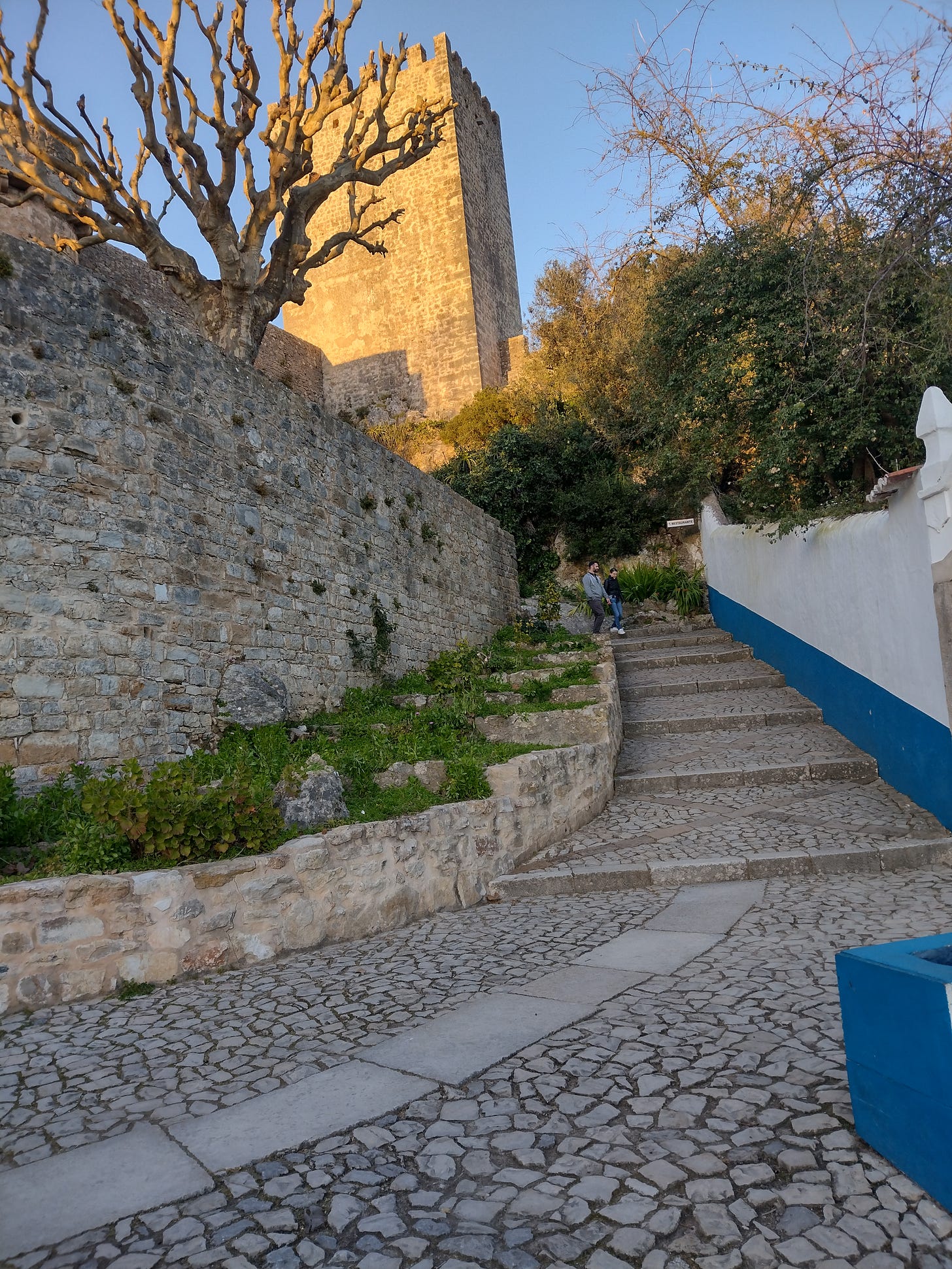
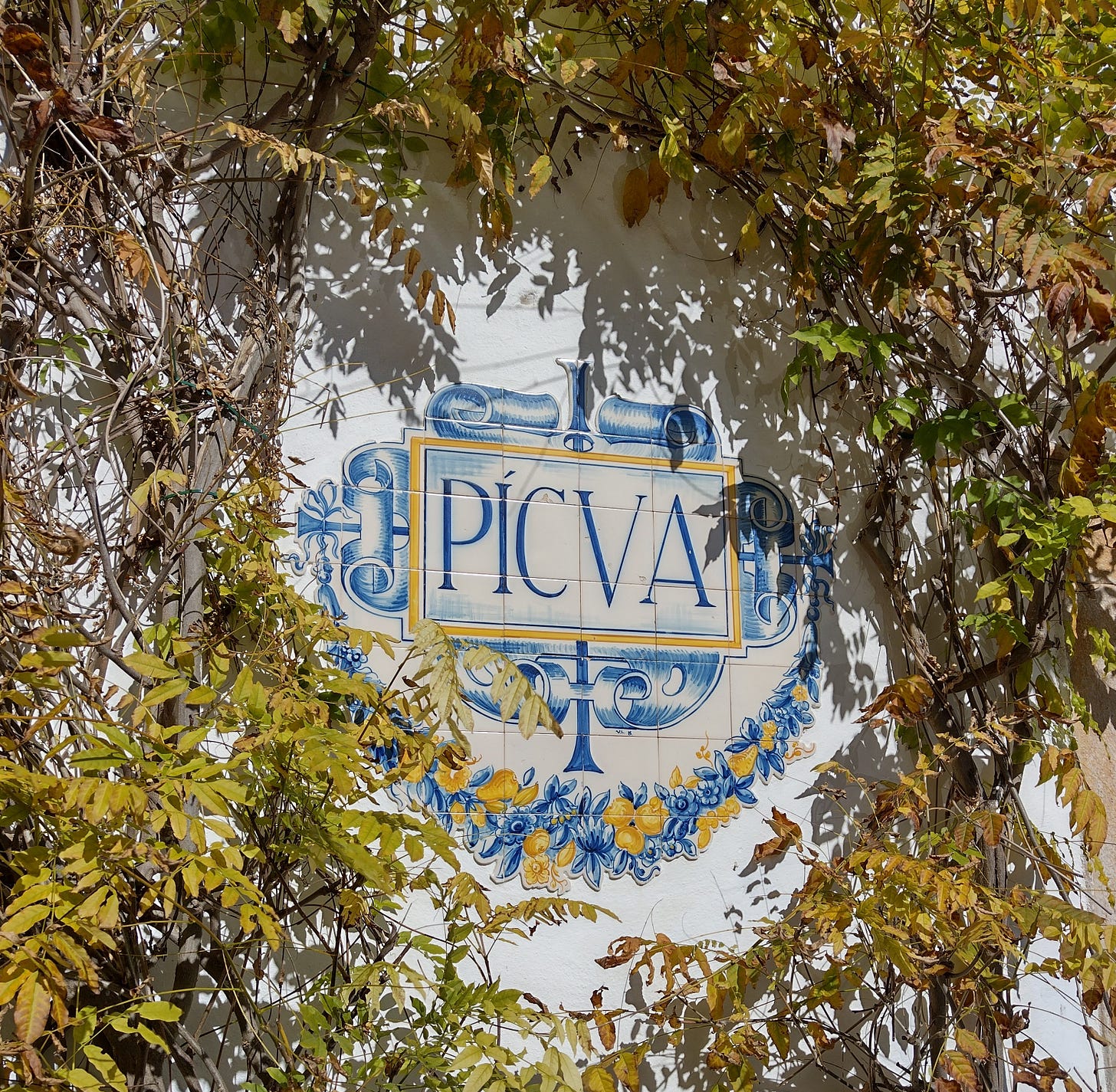
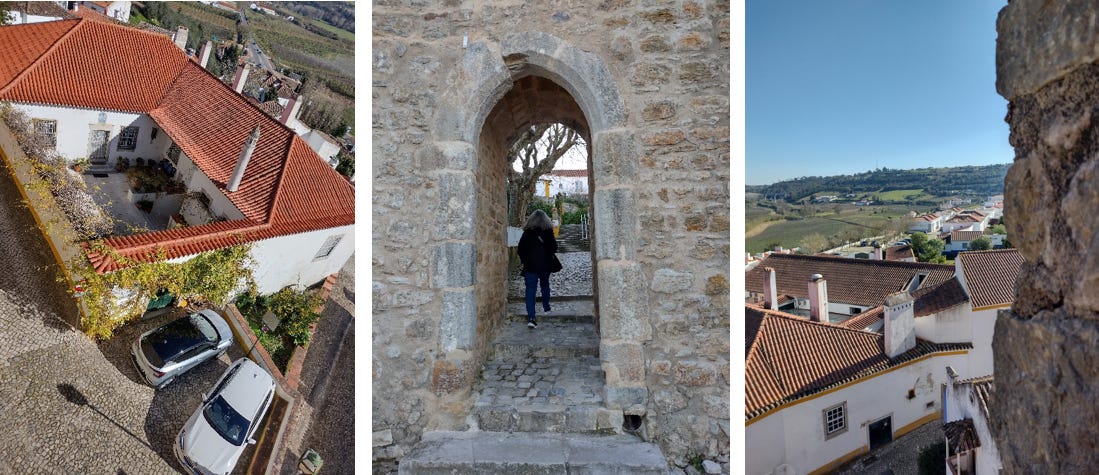




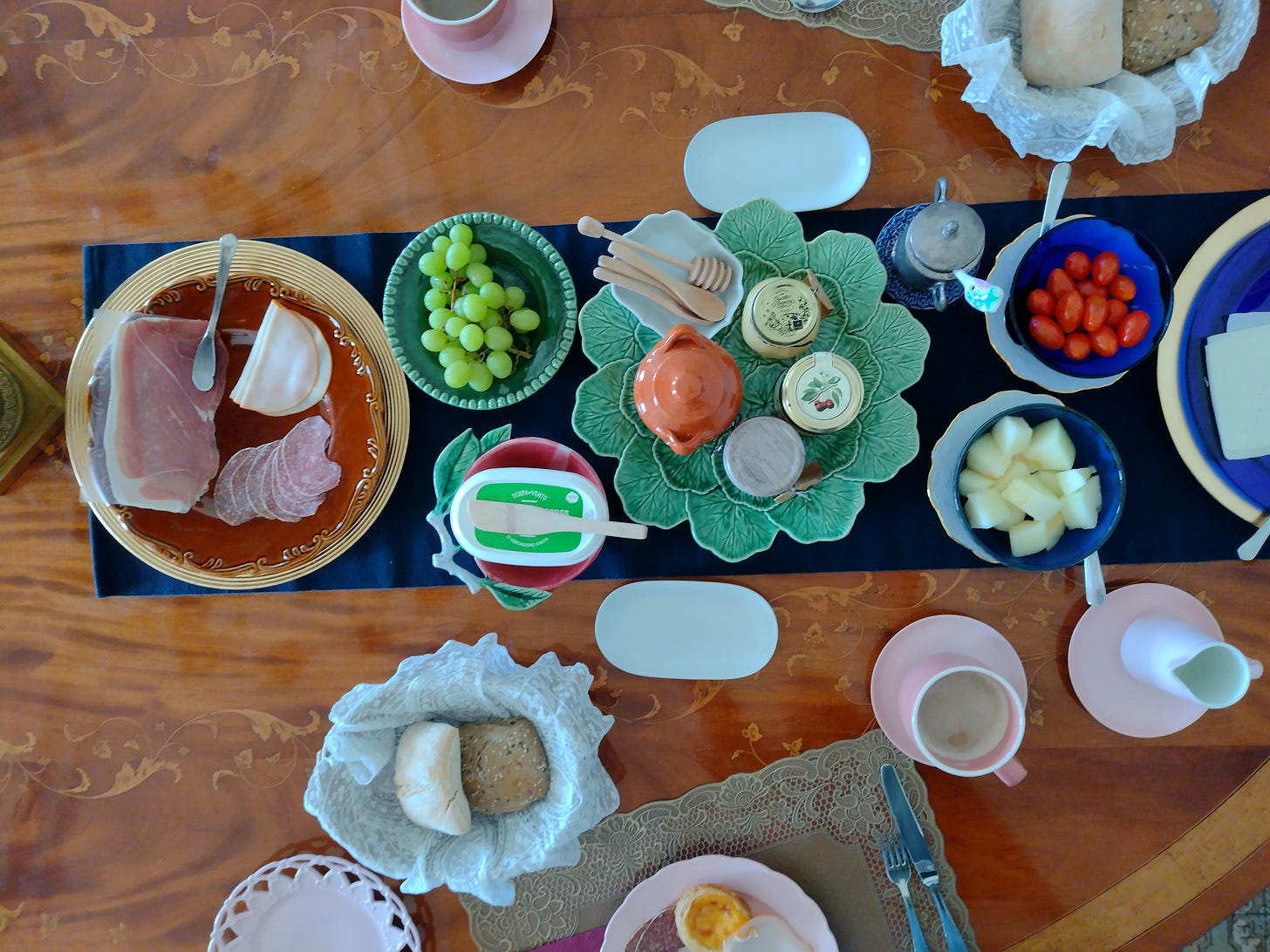


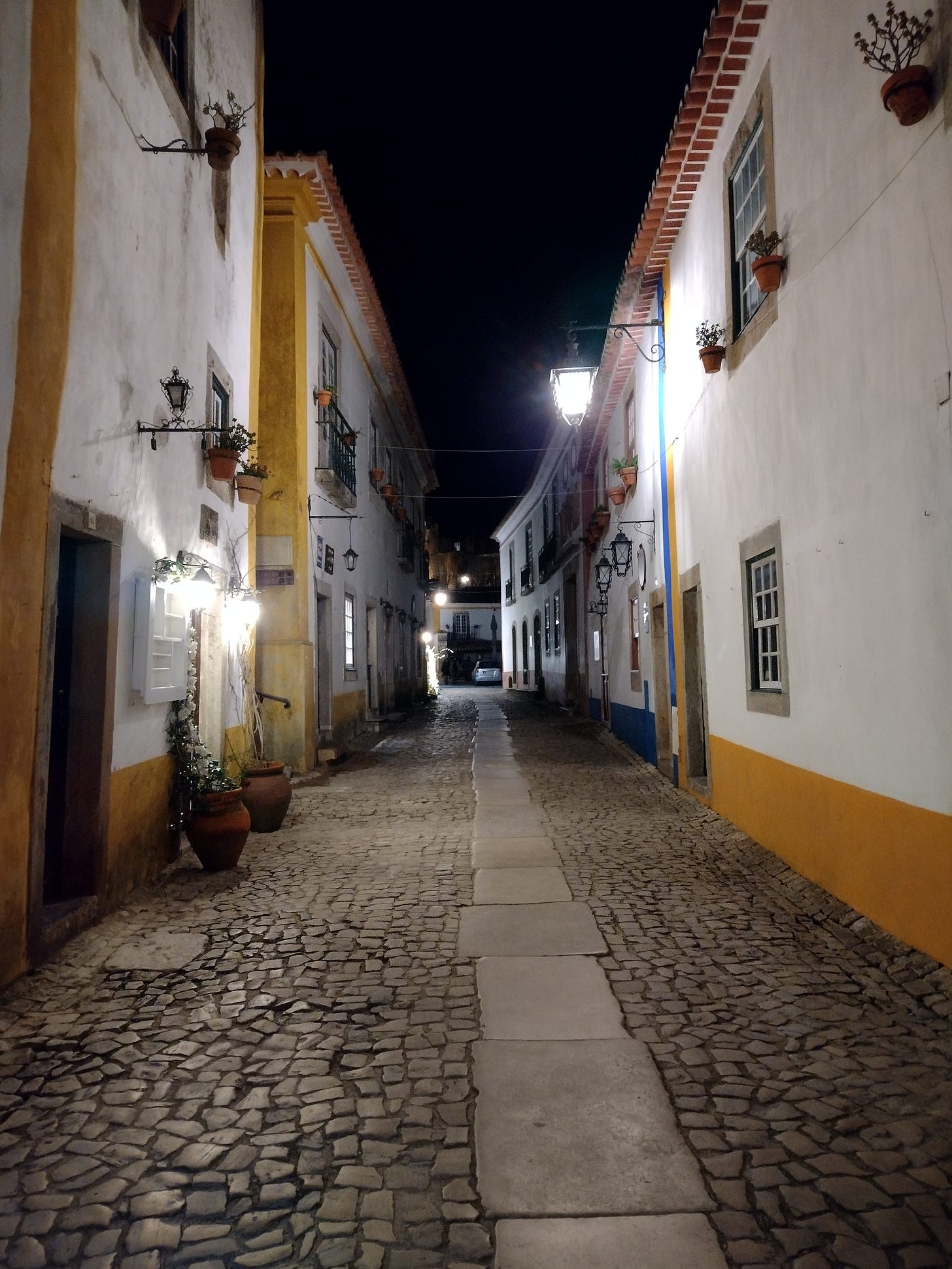
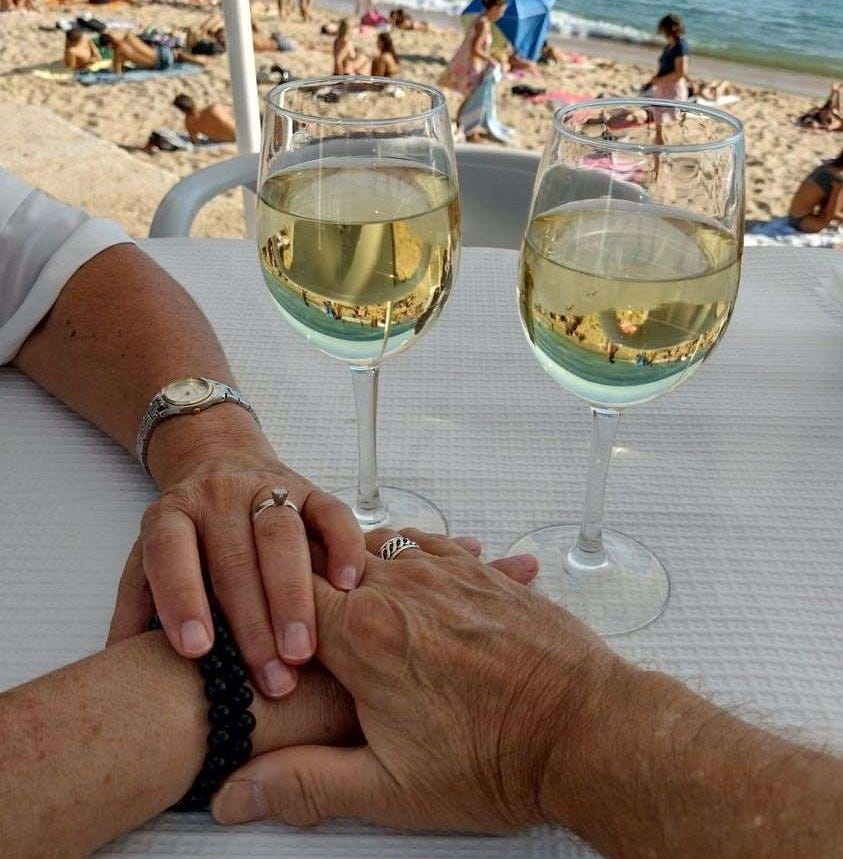
Love this town and thanks for providing another place to stay!
Looks and sounds like a delightful location!